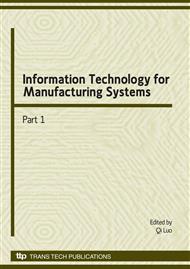p.916
p.920
p.926
p.931
p.936
p.942
p.948
p.954
p.958
Attitude Stability Determination Based on RCS Series Information Extraction for Space Objects
Abstract:
Information extraction for space objects based on narrowband radars is still a hot spot in the field of automatic target recognition. The attitude stability of space objects can be determined by randomicity and periodicity detection for RCS series. In this paper, a nonparametric statistics theory called run test is adopted to perform randomicity detection. Autocorrelation function and cepstrum analysis are used to judge periodicity and estimate the rotate speed for rotary targets. What’s more, a novel method is proposed here for attitude stability determination according to the rule of posture angle altering. The experiments with real data indicate the effectiveness of the methods.
Info:
Periodical:
Pages:
936-941
DOI:
Citation:
Online since:
January 2010
Authors:
Keywords:
Price:
Сopyright:
© 2010 Trans Tech Publications Ltd. All Rights Reserved
Share:
Citation:


